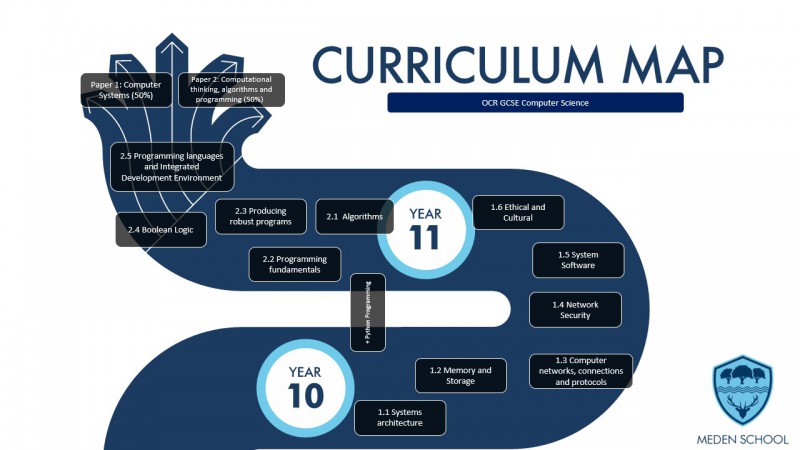GCSE Computer Science
OCR’s GCSE (9–1) in Computer Science will encourage students to understand and apply the fundamental principles and concepts of Computer Science, including abstraction, decomposition, logic, algorithms, and data representation. They will have opportunities to analyse problems in computational terms through practical experience of solving such problems, including designing, writing and debugging programs.
Students will think creatively, innovatively, analytically, logically and critically. They will also understand the components that make up digital systems, and how they communicate with one another and with other systems. Students will continue to develop their understanding of the impacts of digital technology to the individual and to wider society.
Students take J277/01 and J277/02 to be awarded the OCR GCSE (9–1) in Computer Science.
J277/01: Computer systems. Written paper: 1 hour and 30 minutes 50% of total GCSE 80 marks
J277/02: Computational thinking, algorithms and programming. Written paper: 1 hour and 30 minutes 50% of total GCSE 80 marks.
All students will be given the opportunity to undertake programming task, either to a specification or to solve a problem (or problems), during their course of study. Students may draw on some of the content in both components when engaged in Practical Programming. At Meden students will study Python 3.
Below is information about our KS4 curriculum. Each drop down box contains the topics we cover in the GCSE Computer Science For more detail on the knowledge we teach, please click on each medium-term plan. Our curriculum map shows the learning journey that our students embark upon.
In Year 10, students study the following topics:
- 1.1 Systems architecture
- 1.2 Memory and storage
- 1.3 Computer networks, connections and protocols
- 1.4 Network security
- 1.5 Systems software
- 1.6 Ethical, legal, cultural and environmental impacts of digital technology
In Year 11, students study the following topics:
- 2.1 Algorithms
- 2.2 Programming fundamentals
- 2.3 Producing robust programs
- 2.4 Boolean logic
- 2.5 Programming languages and Integrated Development Environments

